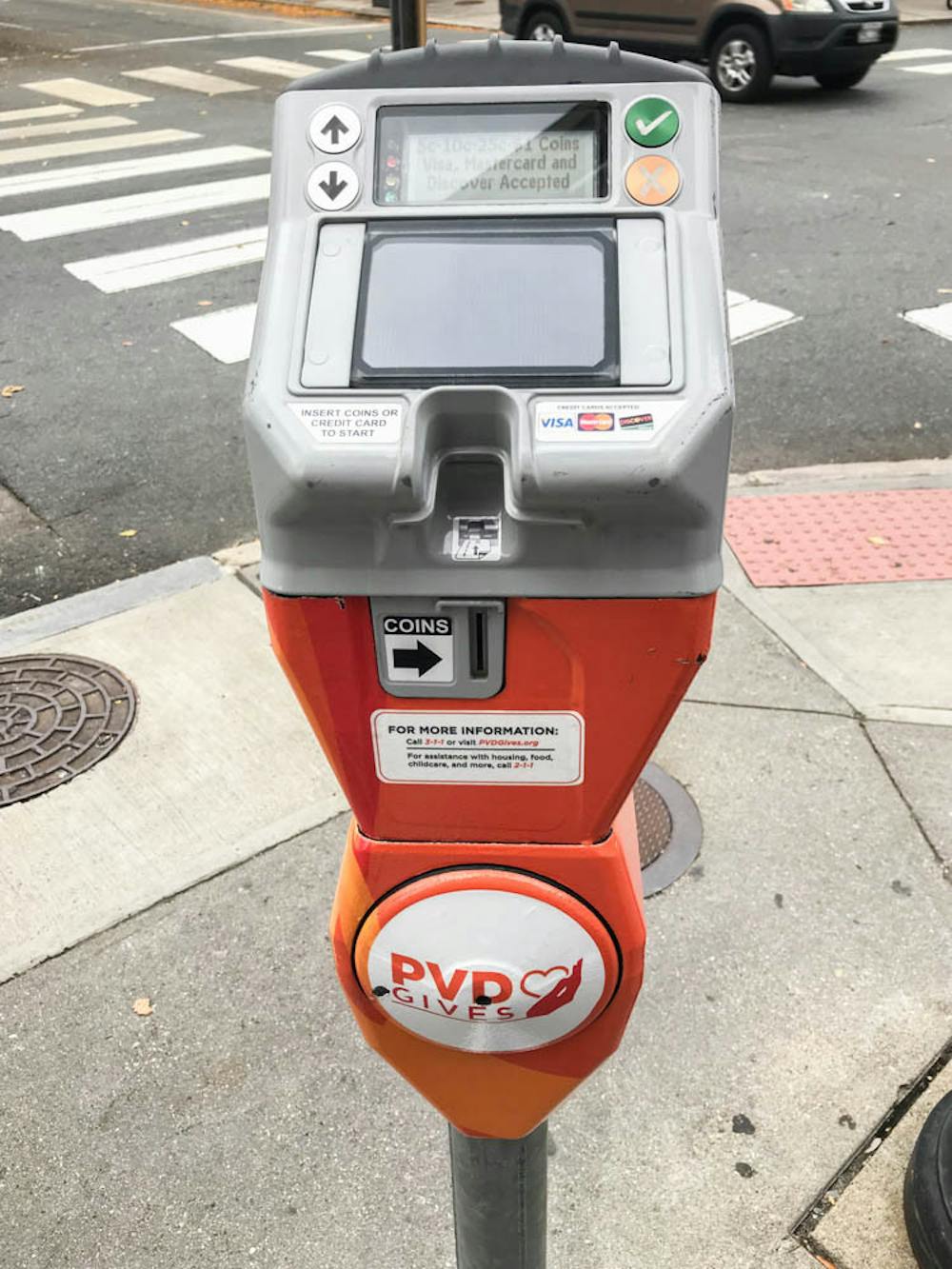Amongst the parking payment kiosks along Thayer Street, a singular parking meter stands out at the corner of Thayer and Angell Street — but it’s not to pay for your spot. Instead, the device is one of ten orange meters accepting donations, recently installed throughout Providence as part of Mayor Jorge Elorza’s initiative, PVD Gives, to support services for homeless individuals. On Sept. 7, Elorza launched the program with a $100 personal donation in the meter at Kennedy Plaza.
The funds from the meters, as well as online donations, will be pooled and then distributed through a grant application process to non-profit organizations that support homeless individuals in Providence, said Victor Morente, a spokesperson for the mayor’s office. As of 2014, over 4,000 individuals were experiencing homelessness in Rhode Island.
A five-person commission will determine the grant recipients in March 2018, according to a press release from the mayor’s office.
The meters collect donations through coin slots or with a credit card payment.
The meters are part of a larger initiative in the mayor’s office to support homeless individuals that was announced last year, Morente said. Elorza additionally set aside $200,000 to support A Hand Up, a program that “provides job opportunities for those who are experiencing homelessness,” Morente added. Homeless individuals are paid to clean streets and address other needs in the community, he said, adding that the “program has proven to be successful.”
“First and foremost, the answer to homelessness is affordable housing,” said Gabriel Zimmerman ’17.5, a site leader for Housing Opportunities for People Everywhere. He added that those experiencing chronic homelessness must often wait for months or years for affordable housing.
“There’s definitely room for improvement” in the mayor’s initiatives to end homelessness, Zimmerman added.
The giving meters were proposed just as city business leaders like Joseph Paolino led the charge to crack down on panhandling.
“Anyone who donates knows that money is in fact going to be given to service providers,” Morente said. He added that those who give money to panhandlers may not know what they will use the funds for. However, the meters are not a direct measure intended to curb panhandling, he said.
Panhandling remains legal in Providence despite recent ordinances intended to curb the practice in nearby Cranston, Rhode Island. The ACLU has filed suit against Cranston, claiming that the ordinance violates First Amendment rights. Providence has chosen not to pass a similar ordinance “based off of advice” from “our legal team,” Morente said.
“I applaud Mayor Elorza for thinking about the homeless population of Providence. I think that the meters are a good … thought,” Zimmerman said. But he argued that the city should instead invest its funds and energy in ending homelessness through a housing-first model and “wraparound services,” he said.
Each meter costs the city about $1,000, as reported by WPRI.
“While I think HOPE appreciates the sentiment, we would have loved to see that money go to housing first programs,” Zimmerman said.
Additionally, 2.85 percent of all credit card donations will be pulled from the transaction in service fees. The city is also charged a fee of .75 percent plus a 25-cent flat fee for all electronic payments, according to the PVD Gives website.
The city does not know how much the campaign has raised to date. The meters began collecting donations in September, and the city plans to check the progress of the collection at the end of this month, Morente said.
For some passersby on Thayer Street, the new meter has prompted confusion.
The meters are marked with a small circle that reads “PVD Gives.” The phrase “sounds like it donates to a cause or something like that,” said Brendan Sweeney ’21. He had never noticed the meter before, despite regularly crossing the intersection.
The phrase “PVD Gives” has no particular meaning, Sweeney said, adding that he “would be happy to donate” if he knew the purpose of the cause. “It should definitely say its purpose. There should be a big sign,” he said.





